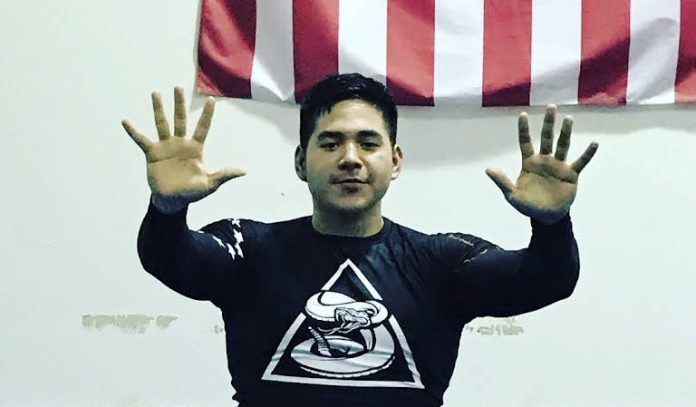
I usually like to avoid the word “rules” in any shape or form during class. However, for the purposes of this article, there’s really no better way to put things into perspective. What I usually tell people on their first day is that there are no rules in Jiu-Jitsu, outside of competition. There are only logical guidelines that can make life easy if you follow them. My take on things is that I can’t teach anyone Jiu-Jitsu. You learn Jiu-Jitsu on your own, I just provide the venue and some general “driving” directions. However, if you’d like your Journey through the Gentle Art to be gentler, here are 10 golden rules of Brazilian Jiu-Jitsu to abide by.
The most important rules of Brazilian Jiu-Jitsu are actually the unwritten ones that concern etiquette. How you conduct yourself on the mats is crucial to you being accepted and thriving in the sport. Apart from those, everyone finds their own BJJ niche to follow. In those terms, there are not many universal rules that can apply to everyone, considering how individual the nature of Jiu-Jitsu is, to begin with. Still, there are several principles that can really help you put grappling into perspective. In fact, there are 10 golden rules that will certainly make BJJ life easier for everyone.
“Rules” In BJJ
Brazilian Jiu-Jitsu is a sport and/or art that doesn’t really like to conform by rules. I mean, the point of it all is to deceive another person who also knows moves you know, into falling behind with their game so that you can progress with your own game towards the final goal of submitting them. That right there shows how much creativity you need in order to really develop as a grappler in a significant way. And rules can only get in the way of personal growth and creativity.
Let me make one point clear. When I write about no rules in BJJ I don’t mean that anything is allowed. I just mean that there are no real rules that if you break, you can’t perform something. On the contrary, each move works a bit differently for everyone. The idea is to get people to talk and share about why things work for them. That way, they both share knowledge, van though they might not understand it yet, and a coach can point them in the right direction. But, unlike traditional martial arts, if the hand or foot is an inch to the right, or slightly rotated, it doesn’t mean that the move won’t work. On the contrary, it may just work better. This is precisely why rules in BJJ are more of a hindrance than a help.
That said, there are certain rules of Brazilian Jiu-Jitsu that we can look at as being golden rules of the sport/art. As such, they’re there to help us understand what BJJ is all about and help us develop our games and our personal style of grappling. These rules are nothing unbreakable (no rule is) but do serve a purpose. Moreover, they’ll help put things into perspective not just for new students, but also those with considerable experience in Jiu-Jitsu.
10 Golden Rules Of Brazilian Jiu-Jitsu
These rules are by no means the all-encompassing ten rules that universally apply everywhere. As I said, I’m not too big on talking about the rules of Brazilian Jiu-Jitsu. Id’ much prefer to use the word “guidelines”, or “principles”, but in my experience, talking about “rules” resonates better with people. The idea with these rules is to help you find reason behind everything you do on the mats, both technically and mentally.
1. Minimum Effort, Maximum Result

IN simpler terms, if you can pass a guard or sweep with just a flick of your foot or hand wouldn’t you do it? How about submitting someone just by breathing in deeply? That’s what minimum effort is all about.
2. There Is Losing In Jiu-Jitsu
“You either win or you learn”. NO. As far as rules of Brazilian Jiu-Jitsu go, you can and will lose in BJJ. And you will lose a lot. There’s no way around it and there’s no need to sugar coat it behind statements like the one above. Lessons are everywhere, in both defeat and victory. Plus, the goal is to force someone to surrender, even in training, which is by definition, a loss when we look at it from a sports perspective. So you can lose in Jiu-Jitsu, and you actually need to. It is a good thing and one you need to find a way and deal with.
3. Control Is Everything
The old mantra of “position before submission” went out the window with Danaher’s in-depth philosophical approach. He changed it to “control before submission” precisely highlighting what the main focus of Jiu-Jitsu is. In fact, the DDS leg locking system is the perfect example of it. Before, people were just hunting leg locks as a submission. When Danaher introduced control into the mix, we suddenly saw a powerful weapon emerge in and are thought to be not worth exploring by the majority.
However, control in BJJ is tricky. You can’t just pin someone like on other grappling martial arts and hope for the best. Instead, you need to control your opponent in a way that restricts their movements in very specific terms. That way, every movement they can make actually works in your favor. (It takes a long time to figure out control, but it is more than worth it, as with it, you can freely submit anyone.
4. Embrace Suffering
For anyone walking into BJJ, this s not really optional. However it becomes something people run from after blue belt, and that is precisely why very often it takes people lots of time to progress in the sport. Suffering is a great way to really understand what is happening around you. And, since there’s always going to be someone infinitely better than you, you should embrace suffering and look forward to it. This is one of the golden rules of Brazilian Jiu-Jitsu.
Of course, this doesn’t mean you shouldn’t be trying to execute techniques and get taps every time you roll or fight. However, it does mean that you will learn more if you get yourself in really bad spots and endure the suffering that will follow. IN time, you’ll start to enjoy it and when your mind clears of all the panic, you’ll discover things nobody can teach you about Jiu-Jitsu.
5. The Holy Trinity Of Easy, Hard, And Dumb
This is a notion that I often use to introduce people to Brazilian Jiu-Jitsu. Since we already talked that being lazy is actually something you want and that there’s no real right or wrong way of doing things since everyone is different, this is how people can make sense out of those concepts.
This rule goes like this: there’s no right or wrong in Jiu-Jitsu. Anything you do, you can either do the easy way (which is the best), the hard way (which is where most of us spend most of our time trying to figure things out), or the dumb way (which is when we give our training partners/opponents presents). The goal, is understandable, the easy way. The moment you achieve it, you’ll also be in sync with the first rule, and will have to go through a lot of suffering to get ether. You see how they all tie in together.
6. Using Strength Vs. Strength
Since I’m talking about the golden rules of Brazilian Jiu-Jitsu, I’ll use the opportunity to also dispel a myth – the one that you don’t need any strength in BJJ. On the contrary, strength, power, explosiveness, and other athletic abilities have a huge role to play in grappling. However, the rule in Jiu-Jitsu is to never use that strength to fight against strength. Whenever you feel someone is forcing stuff or using strength against you, you have to become as loose as possible and actually try to go around the strength. Going head is never a guarantee that things will work. If you do not reply to the strength, but go around it, you’ll actually gain the upper hand in most exchanges of the sort.
7. You Need The Fundamentals
Remember the rule about control? Well, if you want to learn what control in Jiu-Jitsu is, you need to get a grasp of the fundamentals. And, even though they might not be as fun as some of the spinning, flying and rolling stuff you see, they’re way more reliable. Master the fundamentals first, focusing on both the offensive and defensive side of things. The truth of the matter is you’ll be polishing your fundamentals your entire life, but really giving them attention early on will provide you with the best bang for your buck.
8. Never Hold On A Submission After A Tap

9. Respect
Respect in Jiu-Jitsu is a big thing. In some cases, like the curious one with Creonteism, it even goes too far. However, the fact remains that you need to respect everyone in the gym. You don’t have to like everyone, but you need to have respect for your training partners, coaches, opponents in tournaments, referees, etc. You’ll undoubtedly learn how if you really take to BJJ, but the important thing to know is that people in this sport give you their most valued material possession – their body, to play around with. Treat it with respect, because if you don’t, people won’t respect you either. That’s when injuries and bad stuff happens.
10. You Can Learn From Everyone

You’d be surprised at how many things you can learn from people that have a blank mind when it comes to Jiu-Jitsu. For example, a girl that trained for three months taught me a heel hook grip on her first-ever leg lock class, simply because she figured gripping a bit defiantly than what we’re used to, made more sense to her. It does, and that grip is extremely powerful, and one I haven’t seen before.
Conclusion
The golden rules of Brazilian jiu-jitsu are there to serve as a guide to what is easy. As discussed, begin lazy and looking for the easy way is actually what you want in this crazy sport of ours. Remember to bark all of the rules occasionally, though, apart from number 8. After all, the point is to explore things from our own perspective and teach ourselves the Gentle Art, in a way that makes sense to us.


![Darce Choke Encyclopedia – Origins, Mechanics and Variations [2025] BJJ, choke, Brabo, BJJ Darce Choke, D'arce Choke, Darce BJJ Choke](https://bjj-world.com/wp-content/uploads/2017/11/JungPoirierLeeYahoo-218x150.jpg)











![Ultimate Study Tomoe Nage Neil Adams BJJ DVD Review [2025] Ultimate Study Tomoe Nage Neil Adams BJJ DVD Review](https://bjj-world.com/wp-content/uploads/2025/04/tomoe-nage-neil-adams-bjj-dvd-review-218x150.png)

![[VIDEO] Ex-UFC Champ Aljamain Sterling Gets Choked Out Cold on Russian TUF-Style Show VIDEO - Aljamain Sterling Gets Choked Out Cold on Russian Reality Show](https://bjj-world.com/wp-content/uploads/2025/04/LEG-GRABS-2-218x150.png)

![Daisy Fresh WHITE BELT Wrestling Curriculum DVD Review [2024] Daisy Fresh WHITE BELT Wrestling Curriculum DVD Review](https://bjj-world.com/wp-content/uploads/2024/10/daisy-fresh-white-belt-wrestling-curriculum-review-324x235.png)
![Just Pass Jay Rodriguez DVD Review [2024] Just Pass Jay Rodriguez DVD Review](https://bjj-world.com/wp-content/uploads/2024/11/just-pass-jay-rodriguez-dvd-review-100x70.png)









![Breaking Their Guard Mikey Musumeci DVD Review [2025] Breaking Their Guard Mikey Musumeci DVD Review](https://bjj-world.com/wp-content/uploads/2025/02/breaking-their-guard-mikey-musumeci-dvd-review-100x70.png)
![Gracie Secrets Closed Guard Kyra Gracie DVD Review [2024] Gracie Secrets Closed Guard Kyra Gracie DVD Review](https://bjj-world.com/wp-content/uploads/2024/12/closed-guard-kyra-gracie-dvd-review-100x70.png)
![Underhooks With Uncle Jeff Glover DVD Review [2025] Underhooks With Uncle Jeff Glover DVD Review](https://bjj-world.com/wp-content/uploads/2025/02/underhooks-with-uncle-jeff-glover-dvd-review-100x70.png)
![Weight Training For Grappling Michael Israetel DVD Review [2025] Weight Training For Grappling Michael Israetel DVD Review](https://bjj-world.com/wp-content/uploads/2025/01/weight-training-for-grappling-michael-israetel-dvd-review-100x70.png)

![Jeff Higgs Self Defense Guard BJJ DVD Review [2024] Jeff Higgs Self Defense Guard BJJ DVD Review](https://bjj-world.com/wp-content/uploads/2024/09/jeff-higgs-self-defense-guard-bjj-dvd-review-100x70.png)
![Osoto Gari for Jiu Jitsu Jackson Nagai DVD Review [2024] Osoto Gari for Jiu Jitsu Jackson Nagai DVD Review](https://bjj-world.com/wp-content/uploads/2024/10/osoto-gari-for-jiu-jitsu-jackson-nagai-dvd-review-100x70.png)
![Nicholas Meregali No-Gi System DVD Unpacked: A Detailed Review [2024] Nicholas Meregali No-Gi System DVD Unpacked: A Detailed Review](https://bjj-world.com/wp-content/uploads/2024/09/nicholas-meregali-no-gi-system-dvd-unpacked-review-100x70.png)

![Welcome To The Darce Side Travis Moore DVD Review [2025] Welcome To The Darce Side Travis Moore DVD Review](https://bjj-world.com/wp-content/uploads/2025/01/welcome-to-the-darce-side-travis-moore-dvd-review-100x70.png)
![Grappling Takedown Dominance Brandon Ruiz DVD Review [2025] Grappling Takedown Dominance Brandon Ruiz DVD Review](https://bjj-world.com/wp-content/uploads/2025/01/grappling-takedown-dominance-brandon-ruiz-dvd-review-100x70.png)
![Baseball Chokes From Everywhere Magid Hage DVD Review [2025] Baseball Chokes From Everywhere Magid Hage DVD Review](https://bjj-world.com/wp-content/uploads/2025/01/baseball-chokes-from-everywhere-magid-hage-dvd-review-100x70.png)


![Master The Move Anaconda Strangle John Danaher DVD Review [2025] Master The Move Anaconda Strangle John Danaher DVD Review](https://bjj-world.com/wp-content/uploads/2025/02/anaconda-strangle-john-danaher-dvd-review-100x70.png)
